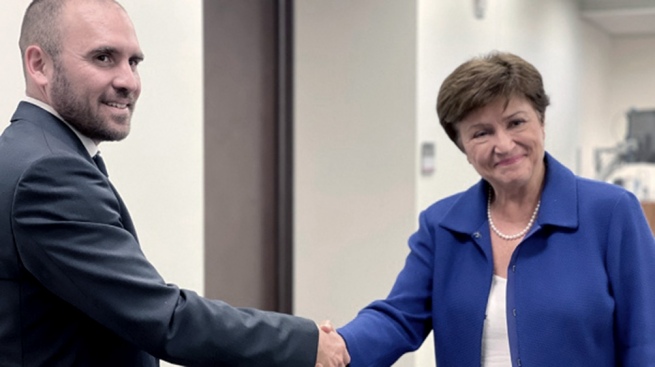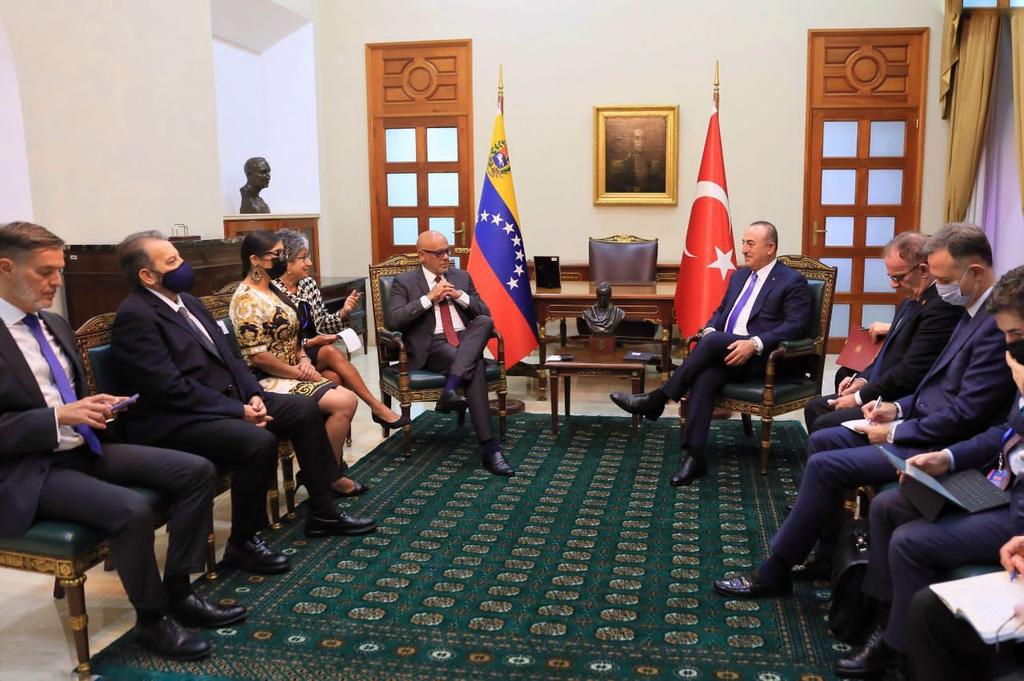The Government hopes to approve the first review of the agreement with the International Monetary Fund (IMF) in mid-May, beyond the situation imposed by inflation, which will alter the assumptions of the program approved a month ago and which refinanced the US$ 45,000 million inherited from Mauricio Macri’s management.
Although at the moment a visit from IMF officials is not expected, from the economic team led by Martín Guzmán they discount that in mid-May some US$ 4,150 million will enter the reserve cofferswhich will be used for cancel the maturities of the debt with the agency for US$ 3,800 million scheduled for June next, and the rest to continue accumulating foreign currency and meet program goals.
Both from the Government and from the IMF they were in tune with the expectations of the progress of the agreement and with the fight against inflation, while demonstrating a fluid dialogue.
Sources from the multilateral organization told Télam that the work to complete the first review has already started, especially during the IMF Spring Meetings.
“We continue to work virtually, including discussions on the first review, and for now there are no plans to hold in-person meetings”specified the source consulted.
The Minister of Economy, Martín Guzmánaffirmed in different business forums, both in San Carlos de Bariloche and in Neuquén, that “The first review will focus on the dynamics of the first quarter of the year, Y these goals in the fiscal part, in the external and monetary part have been achieved”he said, about the rapid disbursement of funds provided for in the program.
It is pointed out that the review in question would be completed during the second week of May, and later, the disbursement of the US$ 4,150 million would be triggered.

Goals don’t change.
Guzmán, in turn, reaffirmed that the goals of the agreement with Argentina “are not going to change”although he did acknowledge that “There are issues that are adapting, which are the projections, in an international context that is one of uncertainty for the whole world, and that has turned inflation into the main problem at the international level”.
The inflation estimates provided in the Letter of Intent, which indicated that the price level would not exceed 50% during 2022; the reality, according to the accumulated inflation of the year (16.1%), the numbers of March (6.7%) and the expectation of the private sector for April (a floor of 5%), allows projecting that the price level would exceed that mark.
To lower inflation “it is necessary to have a macroeconomic policy consistent with the restrictions that the country faces. Not only have it, but build the expectation that this macroeconomic policy will continue over time,” added Guzmán.
While, From the bottom They agreed with the government that “assumptions could change due to the new macro framework, coming from the global economy, new shocks,” said Ilan Goldfajn, director of the IMF’s Western Hemisphere Department.
However, “the objectives are fiscal, reserve and structural and those will not change because we have formal objectives and what we must do is help the authorities prioritize measures to meet these objectives,” Goldfajn said, along the same lines as Guzman.
The Fund emphasized that “the important thing is to prioritize the poor and protect the most vulnerable”since the price and high cost of energy derived from the war between Russia and Ukraine “is temporary, as it was in the pandemic,” he assessed.
Lower subsidies
While, Analysts are aware of the assumptions in the drop in spending for subsidies, that before the war broke out it was estimated that the Government was going to begin to reduce them by 0.6% of GDP, applying a tariff segmentation.
Now, even though the Government advanced in convening public hearings for mid-May, The objective of reducing spending in this way is complicated, due to the increase in energy costs.
Finally, another assumption for to reach the deficit of 2.5% of the GDP is to complete the international financing of the organisms, with help in the local market.
The Ministry of Economy reported that with the placement made this week “a net financing of 0.94% of the Gross Domestic Product (GDP) was achieved, established within the framework of the economic program supported by the Extended Facilities Agreement” with the IMF, which is equivalent to half of the estimates established with the Fund for the year.


















